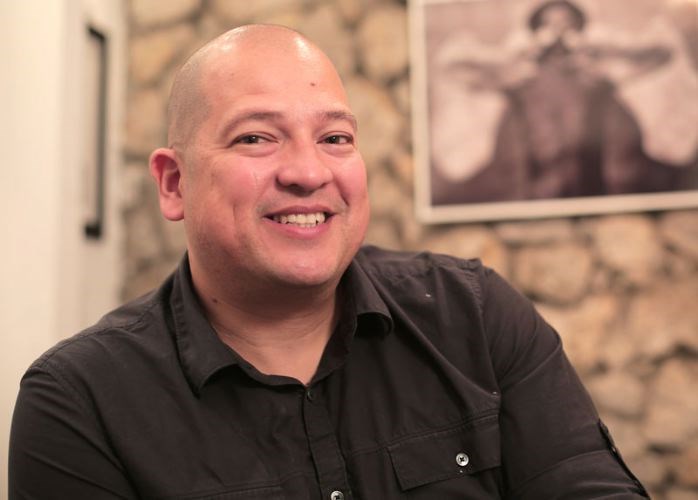Two boys were spared from a massacre that included an entire community, Dos Erres, in Guatemala in 1982.
One boy, Ramiro, was five and remembers perhaps too much, the other, Oscar, was three and remembers nothing.
Memory Truth Justice: Searching for the Disappeared & Missing brings a panel discussion and screening of the Steven Spielberg-produced documentary film Finding Oscar to Prince George tonight and Thursday.
During the panel discussion tonight, Fredy Peccerelli, a world-renowned forensic expert with experience in post-conflict countries who conducted investigations into the massacre that saw mass grave exhumation of the victims, will talk about his work that is featured in the documentary.
Peccerelli is Guatemala's foremost forensic anthropologist and longtime advocate of a partnership between his organization, Guatemalan Forensic Anthropology Team (FAFG), and UNBC, and more specifically with
Dr. Catherine Nolin, UNBC associate professor and geography chair, who has conducted a research program in Guatemala.
Peccerelli will receive an honorary degree from UNBC during his stay in Prince George this week.
Peccerelli's family moved from Guatemala in 1980 when he was nine years old and he returned in 1995 thinking that he would spend a year. He's still there 22 years later.
Two things motivated Peccerelli's investigation into the massacre.
He worked with Dr. Clyde Snow, a forensic anthropologist who had investigated these types of crimes and had overseen exhumations in Argentina in 1984 and others around the world.
"He inspired me and working under him was probably the biggest privilege I have ever had and the other thing is the families," Peccerelli said. "To see the hope that they have of finding a loved one and how that hope is transferred to us - to me - it's a great responsibility and I do what I do because I think if it happened to me I would want someone to do it. If it was someone in my family I would expect that everything that could be done would be done and should be done and I try to do that for everyone who disappeared or was killed during the conflict."
During the panel discussion tonight at
6:30 p.m. at ArtSpace, above Books & Co., 1685 Third Ave., one of the most important things for Peccerelli is for people to know that there are different levels of this kind of work, he added.
"There is the human rights aspect of it or the humanitarian aspects of it which is the empowering of families and it's about identifying and dignifying the memory of the missing and their loved ones and acknowledging their suffering for many years is one part of it," Peccerelli said.
"But there is also the accountability side of it, too. The work that we do is criminal investigations and what we recover can constitute evidence in a trial. At the same time it constitutes history and memories for future generations, making sure we apply everything we learn so next generations understand what happened and hopefully we can all learn from it."
The panel discussion will showcase commonalities shared by families who are searching for truth in Canada and Guatemala.
The panelists include: Terry Teegee, UNBC alumnus and Carrier Sekani tribal chief; Antonia Mills, UNBC professor emeritus; Erica Henderson, UNBC alumna and FAFG technical sustainability assistant and the event will be moderated by Nolin.
The film will be shown in the Canfor Theatre at UNBC at 7 p.m. on Thursday.
"Finding Oscar is the story of two boys who were taken by special forces military who were a group of soldiers who massacred an entire town," Peccerelli said. "I guess in an act of humanity they saved these two boys while this great massacre was happening."
Ramiro remembers everything - which is terrible but Oscar remembers nothing, which is also terrible, said Peccerelli.
"In the film you see when I call Oscar to tell him we have identified that he is not the person he thinks he is and that his biological father is alive in Guatemala today because during the massacre he was out working. The film goes very deep into the massacre and how it happened, some of the perpetrators give interviews, there's an explanation of the role of the American government, and Ronald Reagan's government specifically, and a little bit about the work we do. It is a mystery and it's a really good documentary."
The film will be showcased in select locations in North America and brought for the first time to Guatemala June 14 and 15.
"I'm very proud of the film," Peccerelli said.



